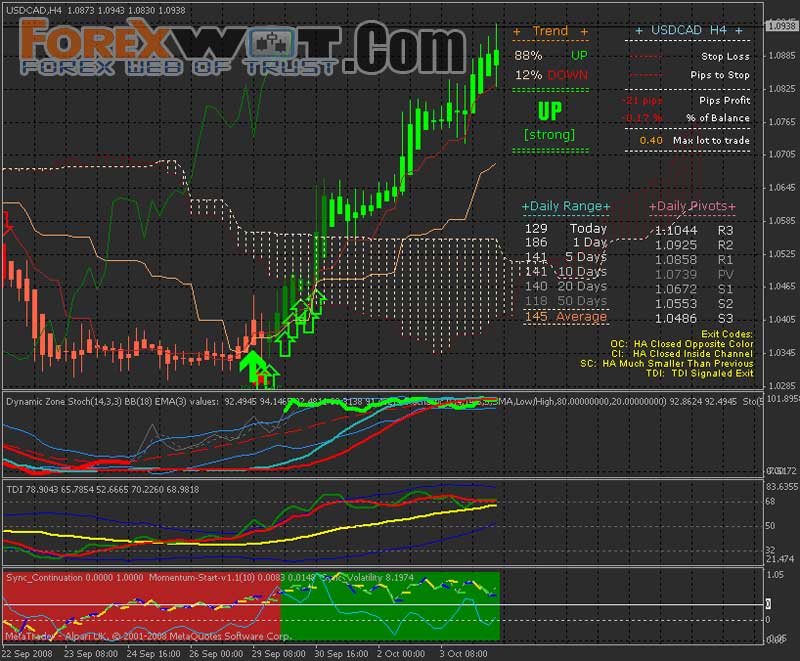Forex Futures: Anticipating Market Movements with Assurance

This Forex market, known for its extensive liquidity and round-the-clock trading environment, presents a unique opportunity for investors around the world. If you're a novice wanting to dip your toes into Forex trading, or a seasoned trader aiming to refine your tactics, understanding the nuances of this ever-changing market is crucial. With currency pairs constantly fluctuating due to economic indicators, geopolitical events, and trader sentiment, being equipped with the right knowledge can empower you to anticipate market shifts with certainty.
In this article, we will explore the fundamentals of Forex trading, such as how the market functions, effective trading strategies, and the key role of psychology in your trading choices. From utilizing the details of technical analysis to understanding the effects of economic news, we aim to provide you with a thorough guide that improves your trading capabilities. By free forex ea with these concepts, you will be more prepared to navigate the complexities of the Forex market and make wise decisions that lead to greater trading achievements.
Comprehending the Foreign Exchange Market
The Foreign Exchange market, commonly known as foreign exchange, is the largest and liquidest financial market in the world. It operates 24 hours a day, five days a week, and enables the trading of currencies. Forex trading involves buying one currency simultaneously selling another, with the goal of profiting from variations in exchange rates. Unlike other financial markets, Forex does not have a primary exchange; instead, it functions over-the-counter (OTC) through a system of banks, brokers, and financial institutions. This dispersal enhances accessibility, allowing traders to participate from anywhere in the world.
To understand how the Forex market functions, it’s essential to understand the core concept of currency pairs. Currencies are traded in pairs, such as EUR/USD or USD/JPY, where the initial currency is the base and the latter is the quote. The price of a currency pair indicates how much of the quote currency is needed to purchase one unit of the base currency. Market actors, including banks, corporations, and private traders, take part in transactions for various reasons, such as hedging against currency risk, speculating on price movements, or enabling international trade.
The dynamics of the Forex market are affected by a multitude of factors, including economic indicators, geopolitical events, and central bank regulations. Traders analyze these factors to forecast market shifts and make educated trading decisions. Understanding the relationship between economic news and Forex movements is vital for achievement in trading. Moreover, technical analysis tools, such as charts and indicators, have a pivotal role in helping traders recognize trends and reversal patterns, enabling them to safely traverse the complexities of the Forex landscape efficiently.
Key Trading Strategies
When dive into the Forex market, adopting robust trading methods is crucial for achievement. One popular strategy is short-term trading, which includes conducting several trades within a single day to take advantage on quick market fluctuations. This approach requires a sharp understanding of market dynamics and the skill to react swiftly to market changes. Traders typically use technical indicators to identify purchase and exit points, taking advantage of the fluctuations of currency pairs to their advantage.
Another common strategy is swing trading, which centers around achieving gains within a medium-term trend. Swing traders usually hold trades for several days to weeks, allowing them to gain from price variations that occur over the period. This strategy relies on thorough market evaluation and a clear trading plan. By identifying key support levels, traders can make informed decisions about when to enter and close trades, reducing emotional responses and improving overall profitability.
For those seeking a more automated approach, algorithmic trading has gained traction in recent times. This strategy uses software to carry out trades based on pre-set conditions. By processing vast quantities of market information and executing trades at high speed, automated trading can help eliminate human mistakes and emotional variance. However, it demands careful strategy and ongoing evaluation to ensure the algorithms perform as desired, making it essential for traders to keep abreast about market trends and potential dangers.
Risk Management and Psychology
Effective risk management is crucial for success in Forex trading. Traders should set clear risk limits before commencing any trade, ensuring that they only expose a minimal percentage of their trading capital on a one position. This method helps diminish losses and allows traders to remain in the market for a longer time, even during phases of volatility. Employing tools such as stop loss and take-profit orders can further enhance risk management strategies, giving traders greater control over their trades.
The mental aspect of trading plays a major role in decision-making. Feelings like fear and greed can result in impulsive actions, which often result in losses. Successful Forex traders focus on upholding a disciplined approach, adhering to their trading plan and strategies irrespective of market fluctuations. Keeping a trading journal can aid in recognizing emotional triggers and improving both mindset and performance, promoting a much more rational and calm trading environment.
Moreover, grasping the psychological aspects of trading enables traders to develop better skills for stress and pressure. Building patience and resilience can differentiate successful traders from the rest. As market conditions shift, those who can remain calm and adhere to their risk management strategies are better positioned to achieve sustained success in the Forex market.

